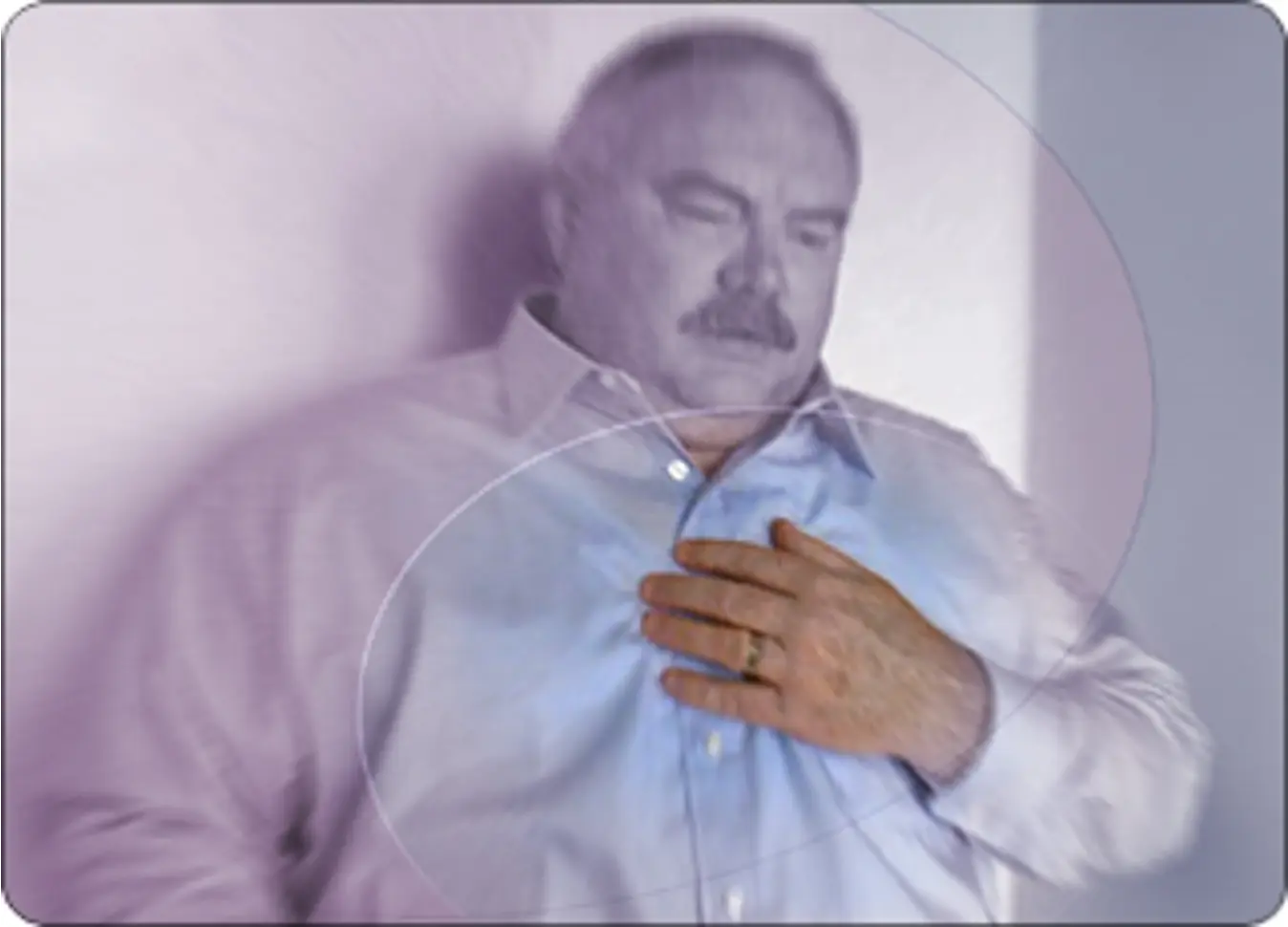Approach to Patients with Chest Pain

General Rule
- As a general rule, any chest pain is ischemic in origin until proven otherwise!
Aetiology
A retrospective study in the US, conducted over a 5-year period, of patients aged over 35 years, with a chief complaint of non-traumatic chest pain admitted to hospital from the emergency department, found that chest pain most frequently had a coronary cause.[7] Pulmonary embolism and aortic dissection were rare but important causes.[7]
- 29.4% atypical chest pain
(ruled out acute myocardial infarction and angina/coronary heart disease; no serious cause established) - 22.5% angina/coronary artery disease
- 10.7% acute myocardial infarction
- 13.8% other cardiac causes
(mostly congestive cardiac failure, atrial fibrillation, and other dysrhythmias) - 11.2% non-PE pulmonary causes
(includes pneumonia and pneumothorax) - 10.2% other
- 1.6% abdominal causes
(includes cholecystitis, pancreatitis, ulcer) - 0.4% pulmonary embolus
- 0.3% aortic dissection

Etiologies
- Myocardial ischemia or infarction
- Pulmonary embolus
- Pneumothorax
- Pericarditis
- Tamponade
- Pneumonia
- Aortic dissection
- Gastritis, peptic ulcer disease
- Musculoskeletal
- Shingles
Chest Pain Classification
Retrosternal Pain
- Myocardial ischemic pain
- Pericardial pain
- Esophageal pain
- Aortic dissection
- Mediastinal lesions
- Pulmonary embolization
Interscapular Pain
- Myocardial ischemic pain
- Musculoskeletal pain
- Gallbladder pain
- Pancreatic pain
Right Lower Anterior Chest Pain
- Gallbladder pain
- Distention of the liver
- Subdiaphragmatic abscess
- Pneumonia/pleurisy
- Gastric or duodenal penetrating ulcer
- Pulmonary embolization
- Acute myositis
- Injuries
Epigastric Pain
- Myocardial ischemic pain
- Esophageal pain
- Duodenal pain
- Pancreatic pain
- Gallbladder pain
- Distention of the liver
- Diaphragmatic pleurisy
- Pneumonia/pleurisy
Left Lower Anterior Chest Pain
- Intercostal neuralgia
- Pulmonary embolization
- Myositis
- Pneumonia/pleurisy
- Splenic infarction
- Splenic flexure syndrome
- Subdiaphragmatic abscess
- Precordial catch syndrome
- Injuries
Shoulder Pain
- Myocardial ischemic pain
- Pericarditis
- Subdiaphragmatic abscess
- Diaphragmatic pleurisy
- Cervical spine disease
- Acute musculoskeletal pain
- Thoracic outlet syndrome
Arm Pain
- Myocardial ischemic pain
- Cervical/dorsal spine pain
- Thoracic outlet syndrome

Typical vs. Atypical Chest Pain Z
Typical Chest Pain
- Discomfort/pressure rather than pain
- Time duration >15 mins
- Provoked by activity/exercise
- Radiation (i.e. arms, jaw)
- Does not change with respiration/position
- Associated with diaphoresis/nausea
- Relieved by rest/nitroglycerin
Atypical Chest Pain
- Pain that can be localized with one finger
- Constant pain lasting for days
- Fleeting pains lasting for a few seconds
- Pain reproduced by movement/palpation
Symptoms Suggestive of ACS
-
Pain in upper arms, back or jaw, that lasts longer than 15 minutes
-
Pain in combination with nausea, vomiting, sweating & breathlessness.
-
Pain in combination with dizziness or feeling light-headed
-
New onset chest pain, or a sudden deterioration in previously stable angina.
-
Additional factors that increase the likelihood of a cardiac cause of chest pain are:
- Older age
- Male sex
- A high number of predisposing clinical features, e.g. smoking, diabetes & obesity.
Non-Cardiac Chest Pain
Pulmonary Causes
- Pneumonia
- Pleuritis
- Pneumothorax
- Pulmonary Embolism
- Tumor
Gastrointestinal Causes
- GERD
- Esophageal spasm
- Mallory-Weiss Tear
- Peptic Ulcer disease
- Biliary/Gallbladder Disease
- Pancreatitis
Musculoskeletal Causes
- Costochondritis
- Cervical Disk Disease
- Rib Fracture
- Intercostal Muscle Cramp
Other Causes
- Herpes Zoster
- Disorders of the Breast
- Splenic Infarct
- Panic attacks & Anxiety Disorder
- Fibromyalgia
- DKA
Cardiac Chest Pain
- Aortic Dissection
- Pulmonary Embolism
- Pulmonary Hypertension
- Pericardial Diseases
- Aortic Stenosis
- Heart Failure
- Cocaine Abuse
Acute Coronary Syndromes
Stable Angina Unstable Angina Myocardial Infarction Cardiogenic Shock
